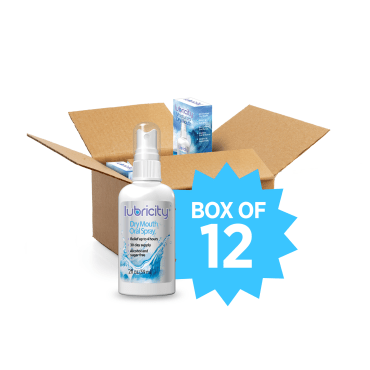Living with a chronic illness can be challenging, as it often comes with a range of symptoms that affect daily life. One common but often overlooked symptom is dry mouth. A dry mouth, medically known as xerostomia, occurs when there is insufficient saliva production in the mouth. It can be caused by various factors, including chronic illnesses such as autoimmune disorders, HIV/AIDS, and Parkinson’s disease.
In this article, we will explore the link between dry mouth and chronic illnesses, and discuss available treatment options, coping mechanisms, and the importance of support networks.
Dry Mouth and Autoimmune Disorders
Autoimmune disorders, such as Sjögren’s syndrome, rheumatoid arthritis, and lupus, can cause dry mouth as one of their primary symptoms. These conditions occur when the body’s immune system mistakenly attacks its own tissues. In the case of Sjögren’s syndrome, the immune system primarily targets the moisture-producing glands, resulting in reduced saliva production.
Living with dry mouth due to autoimmune disorders can be particularly challenging, as it affects not only basic functions like swallowing and speaking but also oral health. Saliva plays a crucial role in maintaining the oral environment by neutralizing acids and preventing the overgrowth of harmful bacteria.
Without sufficient saliva, individuals with dry mouth are at an increased risk of tooth decay, gum disease, and oral infections.
Dry Mouth and HIV/AIDS
HIV/AIDS is a chronic illness that weakens the immune system, making individuals more susceptible to various infections and diseases. Dry mouth is a common symptom experienced by people living with HIV/AIDS. The virus itself, as well as the medications used to manage the condition, can contribute to reduced saliva production.
Dry mouth in HIV/AIDS patients can lead to discomfort and difficulty in eating and speaking. Moreover, it can have a significant impact on overall oral health.
Regular dental care, maintaining good oral hygiene, and seeking professional advice are essential for managing dry mouth and preventing oral complications.
Dry Mouth and Parkinson's Disease
Parkinson’s disease is a neurodegenerative disorder that affects movement and coordination. While it is primarily associated with motor symptoms, such as tremors and stiffness, non-motor symptoms like dry mouth are also prevalent among individuals with Parkinson’s disease. The exact cause of dry mouth in Parkinson’s is not yet fully understood, but it is believed to be related to changes in the autonomic nervous system.
Dry mouth can exacerbate swallowing difficulties and speech problems already experienced by Parkinson’s patients. It can also contribute to oral health issues, such as tooth decay and gum disease. Regular dental visits and practicing good oral hygiene are crucial for managing dry mouth in Parkinson’s disease and maintaining oral health.
Treatment Options and Coping Mechanisms
Managing dry mouth requires a multi-faceted approach that addresses both the symptoms and underlying causes. While there is no cure for dry mouth resulting from chronic illnesses, there are several treatment options and coping mechanisms that can provide relief and improve quality of life.
- Saliva Substitutes and Stimulants: Over-the-counter saliva substitutes and stimulants can help moisturize the mouth and promote saliva production. These products are available as sprays, gels, lozenges, and mouth rinses. It is important to consult with a healthcare professional to find the most suitable option.
- Good Oral Hygiene Practices: Maintaining excellent oral hygiene is crucial for managing dry mouth and preventing oral complications. Brushing teeth at least twice a day with fluoride toothpaste, using a soft-bristle toothbrush, flossing daily, and rinsing with an alcohol-free mouthwash can help maintain oral health.
- Hydration: Staying hydrated by drinking plenty of water throughout the day can help alleviate dry mouth symptoms. Sipping water frequently and avoiding caffeinated and sugary beverages are beneficial.
- Moisturizing the Air: Using a humidifier at home, especially in the bedroom at night, can add moisture to the air and help relieve dry mouth symptoms.
The Importance of Support Networks
Living with a chronic illness can be emotionally and physically challenging. Having a support network of family, friends, and healthcare professionals is vital in managing various symptoms, including dry mouth. Sharing experiences, seeking advice, and receiving emotional support from others who understand the challenges can make a significant difference in one’s well-being.
Additionally, joining support groups or online communities specific to the chronic illness can provide a sense of belonging and a platform to discuss common issues and coping strategies. These networks can offer valuable insights and recommendations for managing dry mouth and other symptoms.
Recommendation: Lubricity Dry Mouth Spray
In addition to the aforementioned coping mechanisms, using a lubricity dry mouth spray can be a convenient and effective way to combat the discomfort of dry mouth. Dry mouth sprays are designed to provide instant moisture and relief, helping to alleviate dryness and promote saliva production.
In addition, Dry mouth is a common symptom experienced by individuals with chronic illnesses such as autoimmune disorders, HIV/AIDS, and Parkinson’s disease. It can significantly impact oral health, comfort, and overall well-being.
By understanding the causes and implementing appropriate treatment options, coping mechanisms, and support networks, individuals can effectively manage dry mouth and improve their quality of life.
Lubricity is a Proud Supporter of the
What do customers say about Lubricity Dry Mouth Spray?











